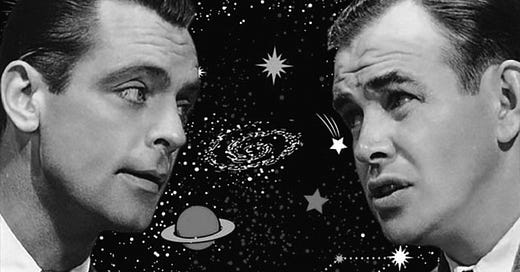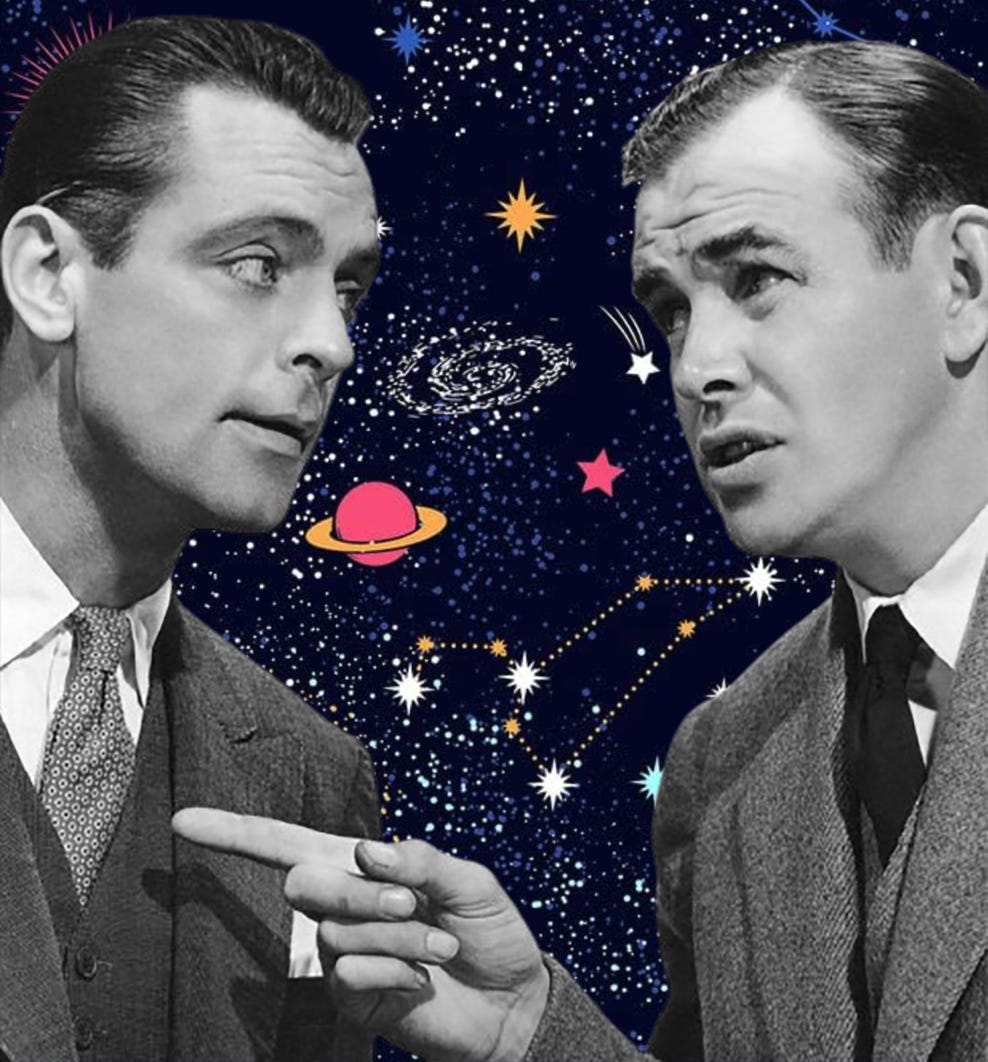You’re reading WOODRUFF. I cover the convergence of pop culture, psychology, and astrology. Join my entourage of subscribers.
WE KNOW SPRING IS RETURNING SOON—the big brain blowhards are mansplaining the dangers of astrology once again. This is a perennial happening, one that has dogged astrology through the annals of time. Reading a recent post by a renowned science author elaborating on the bogus nature (and dangerous repercussions) of astrology rekindled some vivid memories of my childhood. Strap yourself in.
My dad was on the verge of conniption when I once again earned a failing grade in algebra in high school. His strategy to reverse my marks had unintended consequences. On the recommendation of a work associate, he hired a college student in our neighborhood to tutor me on the subject—at our home, upstairs, in my bedroom, on the weekends. The only thing I ‘learned’ from the exchange was that I’d developed a crush on the handsome blond guy trying his hardest to instruct me (and earn some extra cash for his summer vacation). I failed algebra again the following semester.
Reflecting on it now, my insouciance about my dilemma was the first hallmark I registered for understanding something crucial about my nature. Namely, the courage I had to not care about—or exert effort towards—subjects that didn’t fascinate me. Math held zilch interest for me because it didn’t touch my imagination in the way that art, astrology and Diana Ross and the Supremes did. And that was fine by me. I mean, my assumption was logical: it made sense that one would invest time and effort into subjects that moved them deeply. Footnote: This might be one of the shortcomings of possessing a natal chart composed almost entirely of the water element.
Astrology had already started to dominate my imagination in junior high school. Over time, it gobbled up more of my time and stoked more of my passion until, come my senior year in high school, I was catching rides with older astrologers in the area to attend evening classes held by one of my teachers. In retrospect, this showed me what a sport my dad was. Not only was he letting me out of the house on a school night, he was supporting my interest in metaphysics. This was radical for a German rationalist like my dad. He’d wanted a son who would grow up to be an attorney or maybe a doctor (which he’d longed to be when he was younger), but instead, well, here you are reading my acclaimed astrological publication.
A controversy that never interested me, and still doesn’t interest me, was the scientific validity of why or how astrology worked. This might have had something to do with my indifference to science, which, to mystic-minded me, seemed brittle and rule-bound. My impressions of the scientists that I’d see on TV were that most of them were blowhards. Too, from my dad’s fascination with science, I knew that what was today’s etched-in-stone scientific hypothesis would be replaced in a decade by a more streamlined and ‘true’ discovery. Wash. Repeat.






